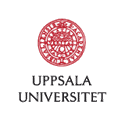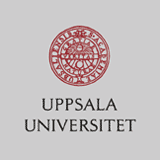Kursinformation finns inte tillgänglig på svenska, visar engelsk kursinformation.
Molecular epidemiology
| Kursnummer | 15 |
| År | 2014 |
| Typ | Methodcourse |
| Spår | - |
| Max antal deltagare | 40 |
| Sista ansökningsdag | 2014-01-31 |
| Språk | En |
| Kursansvarig | Prof Erik Ingelsson och Dr Tove Fall |
| Institution | Dept of Medical Sciences |
| Besöksadress | UCR, Dag Hammarskjölds väg 14B, 1tr, MTC-huset, Science Park, 752 37 Uppsala |
| Postadress | Akademiska sjukhuset, 751 85 Uppsala |
| Datum | March 3-14 (2 weeks) |
| Lokal | Uppsala Clinical Research Center (UCR), Uppsala |
| Kurslängd | Two weeks of full-time studies |
| Kursrapport | |
| Kursplan |
Beskrivning
Molecular epidemiology aims to identify genetic and environmental risk factors at the molecular level to study the etiology, distribution and prevention of disease within families and across populations. The research field has arisen through the merging of molecular biology and epidemiology, and aims to improve understanding of the pathogenesis of disease by identifying genetic variants, metabolites, proteins and other molecules that influence the risk of developing disease.
This course is intended for PhD and master students interested in molecular epidemiology and clinical -omics. It aims to give the students a broad methodological background in methods used in molecular epidemiology at an elementary to intermediate level. It will cover a range of methods used in molecular epidemiology and clinical -omics, and will also give some hands-on training in performing such studies. Experience with basic epidemiological and genetic concepts is an advantage.
Inlärningsmål
After successfully completing this course you as a student are expected to be able to:
• Explain the concept, advantages and disadvantages of genome-wide association studies and differentiate candidate gene approach and genome-wide association studies (S4)
• Plan, undertake and independently analyse a genome-wide association study including quality control and data management of genome-wide association studies (S4)
• Perform and interpret the results of a meta-analysis of genome-wide association studies (S3)
• Summarize some main components that are usually incorporated in the dissemination of genome-wide association studies beyond the actual main analyses (S2)
• Describe the main concepts for next-generation sequencing (S2)
• Describe different approaches to proteomics and metabolomics (S2)
• Understand how to evaluate the potential usefulness of a clinical biomarker (S3)
• Explain how the Mendelian randomization design can be used in a causal context (S3)
Solo taxonomy
S1. Pre-structural - The task is not attacked appropriately; the student hasn’t really understood the point and uses too simple a way of going about it.
S2. Uni-structural - The student's response only focuses on one relevant aspect.
S3. Multi-structural - The student's response focuses on several relevant aspects but they are treated independently and additively. Assessment of this level is primarily quantitative.
S4. Relational - The different aspects have become integrated into a coherent whole. This level is what is normally meant by an adequate understanding of some topic.
S5. Extended abstract - The previous integrated whole may be conceptualised at a higher level of abstraction and generalised to a new topic or area.
Innehåll
The main topics covered in this course are:
• Genetic epidemiology with a focus on genomics of common diseases including genome-wide association studies and application of next-generation sequencing in human populations
• The use of biomarkers in epidemiological studies: Analytical and clinical validity, clinical utility
• Clinical -omics: Transcriptomics (RNA sequencing and microarray data), metabolomics and proteomics
• Mendelian randomization
• Practical training on genetic association studies with the aim that the students should be able to perform run analyses for such studies independently
• Overview of useful bioinformatics databases
Undervisning
The course will be built upon several kinds of teaching methods:
• Lectures: The main concepts of the curriculum will be discussed in regular lectures.
• Seminar: The purpose of the seminar is to review the course content covered in lectures based on discussion around one article distributed before the seminar.
• Computer labs: The exercises and hands-on work with statistical analyses will be available via Internet, and can be done at the student's own computers (at their own leisure). Teachers will be available at Q&A sessions.
• Lab visits: We will schedule a lab visit to the SciLifeLab SNP&SEQ platform for the students to see machines producing molecular data.
Examination
Written and oral examinations.
Litteratur
A collection of review articles provided at the start of the course.
Lärare
Prof. Erik Ingelsson, Dr. Tove Fall, Dr. Sara Hägg, Dr. Stefan Gustafsson, additional tutors and teachers will be involved.
Kontakt
Erik Ingelsson (erik.ingelsson@medsci.uu.se)
Tove Fall (tove.fall@medsci.uu.se)
UCR, Dag Hammarskjölds väg 14B, 1tr, MTC-huset, Uppsala Science Park, 752 37 Uppsala


